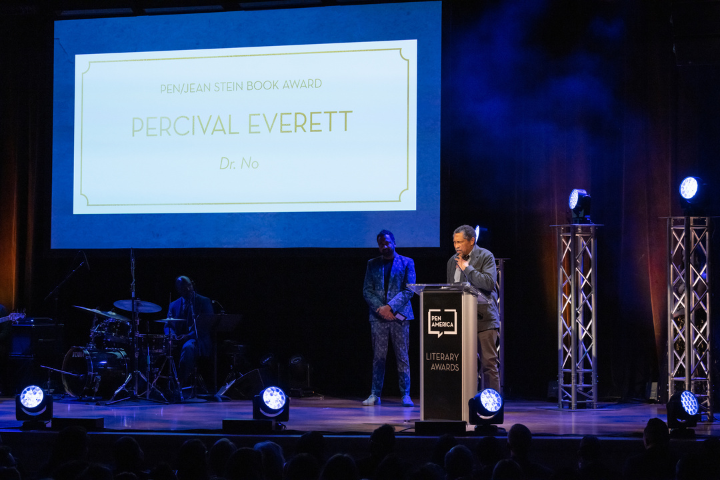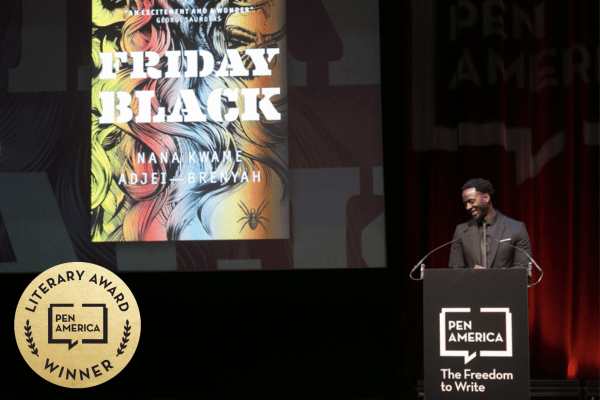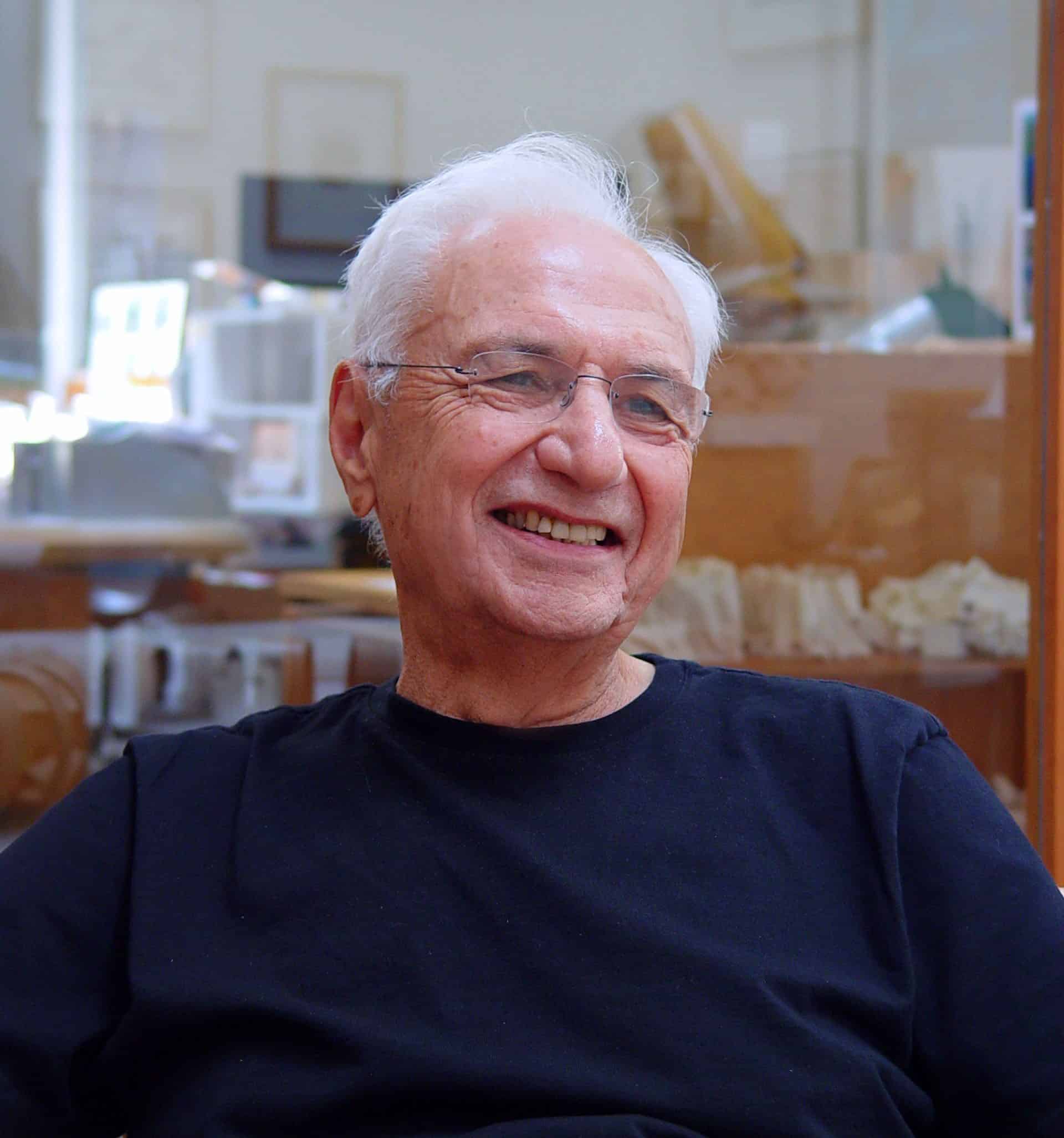
Percival Everett’s body of work has been called many things — experimental, idiosyncratic, “gleefully unhinged” — and perhaps most frequently, prolific.
“It’s a tasteless thing to do, but I have written too many books,” he told PEN America after he was recognized with the 2023 PEN/Jean Stein Book Award for his latest novel, Dr. No, a witty caper featuring a professor who is an expert on nothing, and an aspiring Bond villain who wants to steal nothing – and use it to turn an entire town into nothing.
Everett is the author of more than 30 novels and short story collections. He has described writing fiction as an act of unlearning, and once said, “My goal is to know nothing, and my friends tell me I’m well on my way.”
The $75,000 PEN/Jean Stein prize is awarded to a book-length work of any genre for its originality, merit, and impact. In their citation, judges Lauren Groff, Joan Naviyuk Kane, and Madeleine Thien concluded: “This is such a strange and brilliant book. Nothing like it has existed for a long, long time.”
Asked how he managed to be so productive, Everett shrugged. “I don’t stress. I don’t sleep very much, but it’s just books.”
Everett thanked his publisher, Graywolf Press, his longtime editor, Fiona McCrae, and his agent, Melanie Jackson, in his acceptance speech.
“Melanie told me when we first started working together, ‘you’re never going to make me any money, so just write what you want to write,’” he said, earning laughs from the audience. “And it was perhaps not well advised, but I did.”
Backstage, he added, “It’s nice to have the work recognized. It’d be nice to win an award every week. From PEN, it means a lot. The person who really means the most in all this is my wife, Danzy Senna. Without her, I wouldn’t write anything.”
On the same night, Everett’s former students Robin Coste Lewis and Chris Abani were both finalists for the PEN/Voelcker Award for Poetry Collection. Lewis won the award for To the Realization of Perfect Helplessness, and now teaches Everett’s work to her own students.
“I feel very deeply that he is one of the most profoundly talented writers of all time. He’s also disgustingly prolific,” she said. “I think what I learned most of all from being Percival’s student, though, was the intense dedication to the word, and to being an artist. He writes no matter what, just no matter what, he’s always writing. And also not to b.s. around. He’s very good at cutting through unnecessary performances on the page.”
Everett ended his speech on a serious note, reflecting on what he had learned from a previous novel, The Trees, a murder mystery that takes on the legacy of lynching.
“In my novel The Trees, I have a list of names of people who were lynched. One man is named David Walker. His name is followed by the name of his wife. The book reads, David Walker, David Walker’s wife, David Walker’s four children.”
After the book was published, a reader contacted Everett to share the name of David Walker’s wife.
“So now when i do the reading, i say David Walker, Annie Walker, David and Annie Walker’s four children. I would never have learned that, it would never have meant anything to me, if I hadn’t written about it. And that changed my life.”




